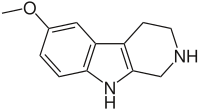
New bifunctional 1,3-diamine organocatalysts derived from (+)-camphoric acid for asymmetric Michael addition of 1,3-dicarbonyl compounds to nitroolefins.
Sign Up to like & getrecommendations! Published in 2022 at "Chirality"
DOI: 10.1002/chir.23424
Abstract: Novel 1,3-diamine-derived bifunctional thiourea and squaramide organocatalysts were synthesized from (+)-camphoric acid. These catalysts were easily obtained in up to two to five synthetic steps, in a flexible approach that facilitates their structure variation. Their… read more here.
Keywords: addition dicarbonyl; asymmetric michael; michael addition; camphoric acid ... See more keywords

Solar light induced transformation mechanism of allyl alcohol to monocarbonyl and dicarbonyl compounds on different TiO2: A combined experimental and theoretical investigation.
Sign Up to like & getrecommendations! Published in 2019 at "Chemosphere"
DOI: 10.1016/j.chemosphere.2019.05.219
Abstract: Enols are an important group of photochemical precursors of atmospheric carbonyl compounds. However, the transformation mechanism is not fully understood. In this study, the photo-induced transformation of a typical enol, allyl alcohol, to carbonyl compounds… read more here.
Keywords: allyl alcohol; dicarbonyl compounds; monocarbonyl; transformation ... See more keywords

Antibacterial activity of 1,2-dicarbonyl compounds and the influence of the in vitro assay system.
Sign Up to like & getrecommendations! Published in 2019 at "Food chemistry"
DOI: 10.1016/j.foodchem.2019.125905
Abstract: The antibacterial activities of the dicarbonyl compounds glyoxal (GO), methylglyoxal (MGO), 3-deoxyglucosone (3-DG) were assessed against Gram-positive and Gram-negative pathogenic and food spoilage bacteria, both in agarised and liquid assay system. The kinetics of dicarbonyls'… read more here.
Keywords: antibacterial activity; dicarbonyl compounds; system; assay system ... See more keywords

Exploring the scope of indole interaction with 1,2-dicarbonyl compounds.
Sign Up to like & getrecommendations! Published in 2020 at "Food chemistry"
DOI: 10.1016/j.foodchem.2020.127031
Abstract: The 1,2-dicarbonyl compounds have received extensive attention due to their high reactivity and toxicity in vitro and in vivo. Availability of scavenging compounds may facilitate development of efficient strategies for their control. The concept of… read more here.
Keywords: dicarbonyl; scope indole; interaction dicarbonyl; dicarbonyl compounds ... See more keywords

Quantitative analyses of α-dicarbonyl compounds in food samples by HPLC using 4-(2,3-dimethyl-6-quinoxalinyl)-1,2-benzenediamine as a derivatizing reagent
Sign Up to like & getrecommendations! Published in 2018 at "Microchemical Journal"
DOI: 10.1016/j.microc.2018.05.006
Abstract: Abstract α-Dicarbonyl compounds, such as 3-deoxyglucosone (3-DG), glyoxal (Gly), methylglyoxal (MGly), diacetyl (DA), and pentane-2,3-dione (PD) have been widely studied because they are the main precursors of advanced glycation end products. In this work, an… read more here.
Keywords: derivatizing reagent; dimethyl quinoxalinyl; dicarbonyl compounds; hplc using ... See more keywords

[4+2] Annulation of 3-(2,2-diethoxyethyl)-1,3-dicarbonyl compounds with indoles catalyzed by Brønsted acid ionic liquid for the synthesis of carbazoles
Sign Up to like & getrecommendations! Published in 2018 at "Tetrahedron Letters"
DOI: 10.1016/j.tetlet.2018.10.029
Abstract: Abstract Various carbazoles were synthesized via [4+2] annulation of 3-(2,2-diethoxyethyl)-1,3-dicarbonyl compounds with indoles. A Bronsted acid ionic liquid, [BPy]HSO4, was proven to be effective catalyst for this reaction. The ionic liquid catalyst can be recycled… read more here.
Keywords: ionic liquid; liquid; compounds indoles; dicarbonyl compounds ... See more keywords

Deciphering Changes in the Structure and IgE-Binding Ability of Ovalbumin Glycated by α-Dicarbonyl Compounds under Simulated Heating.
Sign Up to like & getrecommendations! Published in 2022 at "Journal of agricultural and food chemistry"
DOI: 10.1021/acs.jafc.1c06939
Abstract: As a complex reaction, biological consequences of the Maillard reaction (MR) on dietary proteins need to be deciphered. Despite previous studies on the structural and antigenic properties of ovalbumin (OVA) by MR, associated changes induced… read more here.
Keywords: deciphering changes; ige binding; simulated heating; age ... See more keywords

Formation, Characterization, and Occurrence of β-Carboline Alkaloids Derived from α-Dicarbonyl Compounds and l-Tryptophan
Sign Up to like & getrecommendations! Published in 2022 at "Journal of Agricultural and Food Chemistry"
DOI: 10.1021/acs.jafc.2c03187
Abstract: β-Carbolines (βCs) are naturally occurring bioactive alkaloids, whereas α-dicarbonyl compounds are reactive substances generated in foods and in vivo. In this work, l-tryptophan reacted with α-dicarbonyl compounds affording new β-carbolines. Glyoxal afforded 1-hydroxymethyl-β-carboline (HME-βC) and… read more here.
Keywords: carboline; occurrence carboline; characterization occurrence; dicarbonyl compounds ... See more keywords

Influence of Quercetin and Its Methylglyoxal Adducts on the Formation of α-Dicarbonyl Compounds in a Lysine/Glucose Model System.
Sign Up to like & getrecommendations! Published in 2017 at "Journal of agricultural and food chemistry"
DOI: 10.1021/acs.jafc.6b05811
Abstract: Increasing evidence has identified α-dicarbonyl compounds, the reactive intermediates generated during Maillard reaction, as the potential factors to cause protein glycation and the development of chronic diseases. Therefore, there is an urgent need to decrease… read more here.
Keywords: mgo; system; dicarbonyl compounds; formation ... See more keywords

Melanoidins from Coffee, Cocoa, and Bread Are Able to Scavenge α-Dicarbonyl Compounds under Simulated Physiological Conditions
Sign Up to like & getrecommendations! Published in 2019 at "Journal of Agricultural and Food Chemistry"
DOI: 10.1021/acs.jafc.9b03744
Abstract: Free amino residues react with α-dicarbonyl compounds (DCs) contributing to the formation of advanced glycation end products (AGEs). Phenolic compounds can scavenge DCs, thus controlling the dietary carbonyl load. This study showed that high-molecular weight… read more here.
Keywords: simulated physiological; dicarbonyl compounds; bread; cocoa ... See more keywords

Annulation of CF3-Imidoyl Sulfoxonium Ylides with 1,3-Dicarbonyl Compounds: Access to 1,2,3-Trisubstituted 5-Trifluoromethylpyrroles.
Sign Up to like & getrecommendations! Published in 2021 at "Organic letters"
DOI: 10.1021/acs.orglett.1c02598
Abstract: A lithium-bromide-promoted nucleophilic substitution/annulation cascade reaction between CF3-imidoyl sulfoxonium ylides and 1,3-dicarbonyl compounds has been established, and the corresponding 1,2,3-trisubstituted 5-trifluoromethylpyrroles have been obtained in 27-78% yield. This reaction features a broad substrate scope and… read more here.
Keywords: trisubstituted trifluoromethylpyrroles; cf3 imidoyl; imidoyl sulfoxonium; dicarbonyl compounds ... See more keywords